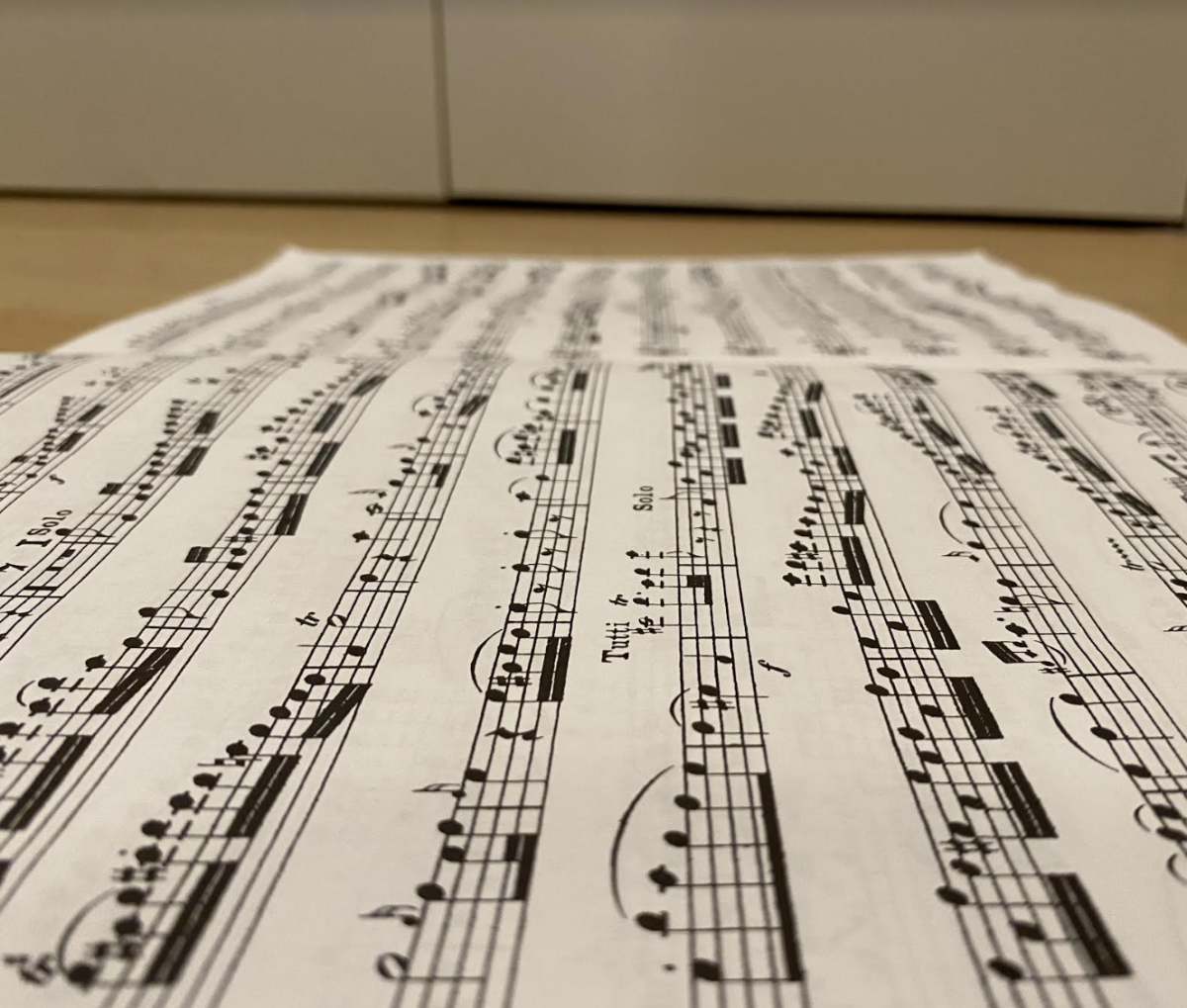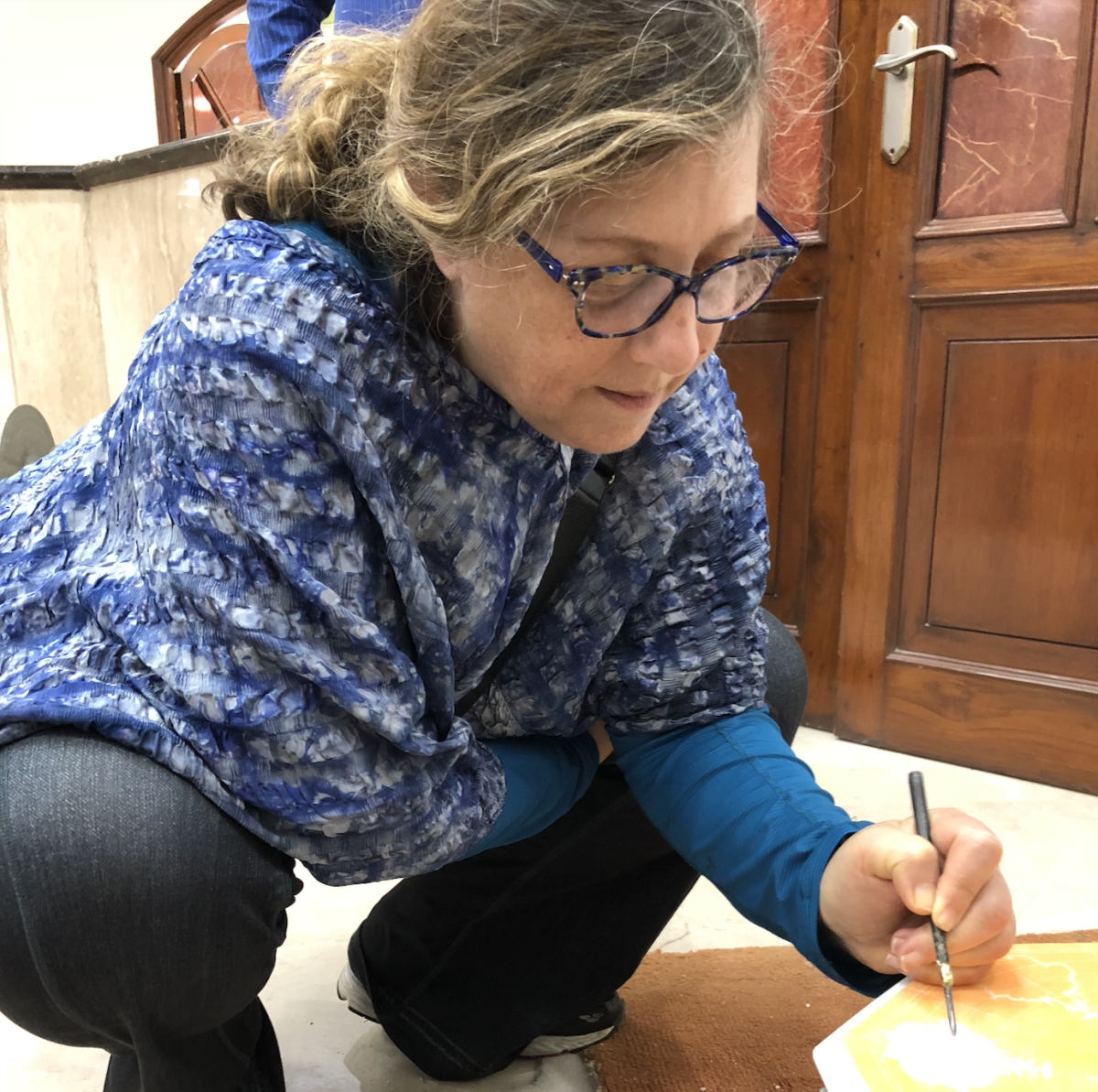Though Wolfgang Amadeus Mozart passed away in 1791, a newly discovered piece of his music has recently emerged, believed to have been composed during his teenage years. This trio for violin, viola, and cello was found while researchers were exploring the Leipzig Municipal Library.
At the top of the manuscript, the title “Serenate ex C,” also known as “Serenade in C,” is inscribed. It has been officially named “Ganz kleine Nachtmusik,” which translates to “Quite (or Very) Little Night Music.”
By the time she heard about the new piece, Gunn senior Alice Ouellette had already found the manuscript uploaded to IMSLP, the world’s biggest online music library. She was enthused by the positive reaction of the music community.
“A few decades ago, this never would have happened—without the internet, such a minor piece wouldn’t have made such a splash,” Ouellette said.
When she first listened to the piece, Ouellette could pick up on Mozart’s characteristic light and elegant style. Despite believing it to be a minor discovery, she found it interesting that another one of his string trios was discovered, especially since he’s not known to write string trios without pianos.
“I could tell it was from his younger years because it was less refined than some of his older works,” Ouellette said. “But even as a young composer he was still a genius.”
She finds that Mozart is a huge influence, particularly in the horn community.
“It’s pretty much universally agreed that Mozart was a prodigy and a genius—his music always sounds ‘perfect’ in a way that I didn’t know was possible,” Ouellette said. “Mozart is a big part of standard [horn] repertoire because he wrote four horn concertos… I love listening to Mozart because it always gives me a sense of completion and his music really is amazing.” 
Gunn sophomore Alex Bae, who recognizes Mozart’s influence on classical music, admits he doesn’t rank him among his favorites unlike Ouellette. However, he expressed curiosity and excitement about this discovery.
“I think the piece will attract more people [to classical music],” Bae said. “Everyone knows about Mozart, so this discovery will encourage people to dig more into… classical music. It will… literally add to his legacy by being added to the [his] collection of music… for eternity.”





![UNSUNG HEROES — Fred Korematsu, Karen Korematsu and Aiko Herzig-Yoshinaga are awarded the Asian American Justice Medal to recognize their fight for justice following the incarceration of Japanese Americans during World War II. In addition, scientists Shuji Nakamura, David Ho, Tsoo Wang, Mani Menon and Chih-Tang “Tom” Sah receive the Asian American Pioneer Award. "[As a scientist,] it is crucially important to be able to communicate your work and your discoveries to [not only] other scientists, but also to the general public," Ho said. Photo by Talia Boneh](https://cmagazine.org/wp-content/uploads/2025/07/useee-1200x800.jpg)



